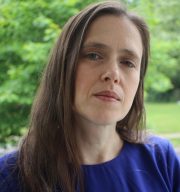Writing the Science Right
by Gideon P. Smith
 Getting the science right in SF can make the difference between writing cute stories and great science fiction. If you are a non-scientist writing SF and want to know how to do that, then this blog post is for you.
Getting the science right in SF can make the difference between writing cute stories and great science fiction. If you are a non-scientist writing SF and want to know how to do that, then this blog post is for you.
Doing Background Research
If science is critical to the overall plot, research before writing. In the movie Armageddon, a Texas-sized asteroid is discovered eighteen days before it will destroy Earth. The movie’s drama hinges on that time pressure. However, an asteroid that size would have been discovered years earlier. Researching first avoids creating such critically flawed stories.
In most cases, however, the science is not plot-critical, and your research will be more efficient if you write your story first. Now, I understand that sounds crazy, but you are not writing a technical manual. What is important is how the technology is servicing the story. For example, if you want to show your commander is technologically smarter than the captain, when drafting you write:
“Commander, we need INSERT INEFFICIENT OR SLIGHTLY INCORRECT SCIENCE to fix the engines.”
“Captain, Couldn’t we INSERT BETTER SOLUTION?”
It doesn’t matter whether the engine needs rubies or milkshakes. Later, when you figure out what’s plausible, you would re-write this as:
“Commander, scan for diamonds.”
“Our scans won’t detect diamonds, Captain, but I am detecting diatreme volcanic vents. Diamonds often occur in kimberlite deposits at such structures.”
By drafting this way, we create a focused list of science questions to research.
Once you have specific questions, your purpose is to learn key vocabulary and get a broad overview. Given that more accessible information is less precise, you’ll want to do the research in stages. Museum information and online curricula for children are simplified and curated for accuracy. Wikipedia has variable quality but is good for high-level overviews. Avoid googling or using tech company brochures. Though attractive, these sources are often rife with inaccuracies or hyperbole. With your overview, you then have the tools to go deeper using science-journalism sources like PBS and Scientific American.
Beyond this, the best sources are those reviewed by scientists, e.g. public information sites from NASA, the CDC, or national professional organizations, like the American Medical Association. Finally, reviews in professional scientific journals including Cell, Science, or Nature are usually in-depth and balanced; and more accessible than the original articles.
If you still have questions, you can attempt to read the original scientific articles. These can be found using specialty search engines like pubmed.gov or georef. However, these are often too technical for laypeople.
If at this stage you still have questions, then you need to speak to a subject matter expert.
Where to find your experts
In addition to authors, SF conference panels often contain well-qualified scientists. These scientists are often open to being approached and will understand what you need. Remember, however, that expertise is field-dependent, and you should target people based on their area of science (also remember this when writing fictional scientists, e.g. don’t have the physician know how to rebuild a nuclear reactor). If your question is not in their field, they may direct you to someone else.
Alternatively, you can contact experts referenced in the papers you read. While companies may be hesitant to reveal industry secrets, academics are often excited to talk about their science. Being approached by a SF writer is often novel for them, and many will be curious to speak with you. However, it is important to be:
- Brief
- Professional
- Ask for a short time commitment
- Offer phone or email so they can choose
- Provide succinct questions up-front. The majority should require yes/no or one-word answers.
- State at the end if you offer anything in exchange
If you are a high school student, tell them. Speaking as an educator, that fact alone would almost guarantee a “yes.”
I ask for a phone call, as scientists will often say more than they type, and it gives me an opportunity to clarify things, but never record without asking permission.
Providing the questions shows this is not a big ask and gives them the opportunity to prepare, answer by email, or re-direct you to a better authority.
In terms of offering something in exchange, everyone’s time is valuable. Be aware, if your ask is not small–expecting them to read your manuscript, or anything that will require them to work outside of your conversation (write equations, do calculations, look things up, etc.) or is on a recurrent or regular basis, then you probably need to pay them. That is also why doing basic research yourself first is so important. It will focus your questions and avoid this.
But even for small asks, offering something is smart. If they are useful to you, you may want to contact them for other projects, so it is worth leaving a positive impression. That can mean simply buying them coffee, mentioning them in the acknowledgments, or for short stories, sending them a signed copy of the magazine in which your work appears. For most scientists, this is a unique experience and you would be surprised how much they may appreciate this.
Finally, scientists are also increasingly using Twitter. However, you cannot guarantee a response, and even if you get one, again, evaluate the qualifications of the person responding.
So there you have it. I hope you find the above guide helpful, and I look forward to reading your scientifically based stories!
Further Reading and Helpful Resources
- NASA’s ambassador program comprises volunteers who try to communicate the science and work NASA is doing. Though not always experts, they are often enthusiastic sources of information
- If you would like to read more on this topic, I highly recommend Dan Koboldt’s book Putting the Science in Fiction.
 Gideon P. Smith is a scientist, nerd, SciFi and fantasy fan, and author. He is a first-generation college graduate. Currently on faculty at Harvard, he holds doctorates in theoretical geophysics and medicine, and has published over a hundred articles in the scientific literature. This background gives him a solid scientific basis to make realistic and internally consistent fiction, whether world-building in science fiction or fantasy genres. To find out more about his work, or to read his blog, you can visit his website at www.gideonpsmith.com or you can follow him on Twitter @gideonpsmith
Gideon P. Smith is a scientist, nerd, SciFi and fantasy fan, and author. He is a first-generation college graduate. Currently on faculty at Harvard, he holds doctorates in theoretical geophysics and medicine, and has published over a hundred articles in the scientific literature. This background gives him a solid scientific basis to make realistic and internally consistent fiction, whether world-building in science fiction or fantasy genres. To find out more about his work, or to read his blog, you can visit his website at www.gideonpsmith.com or you can follow him on Twitter @gideonpsmith


